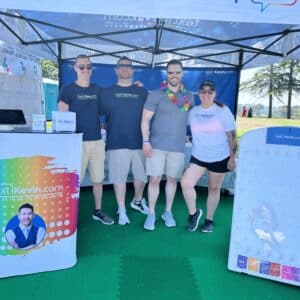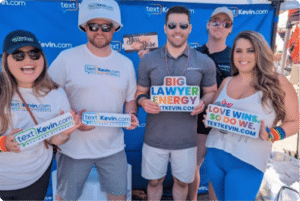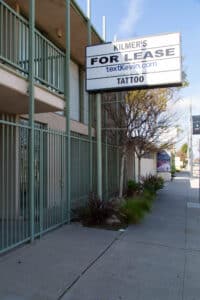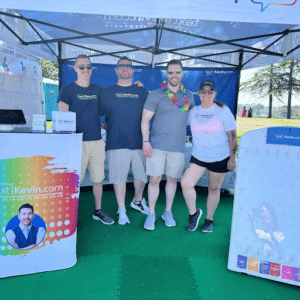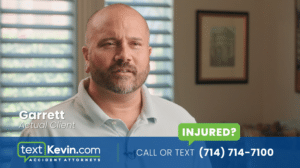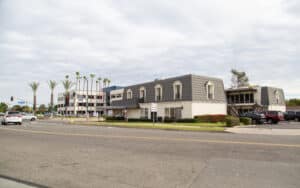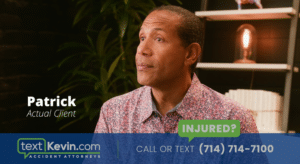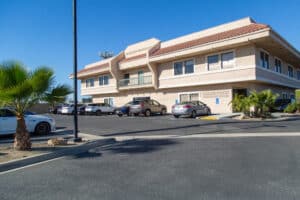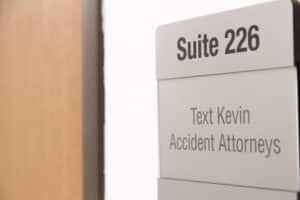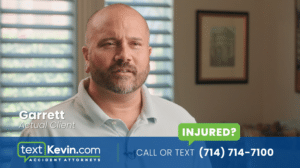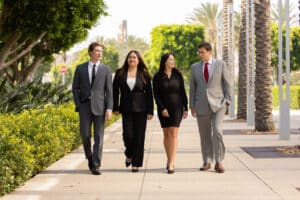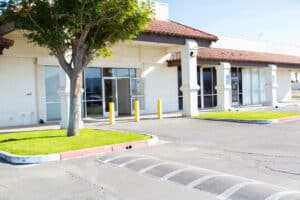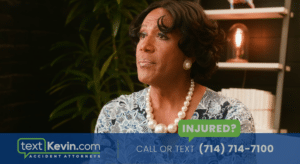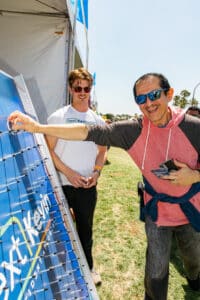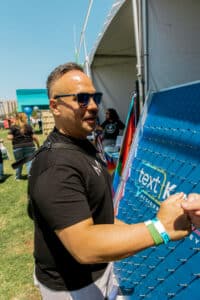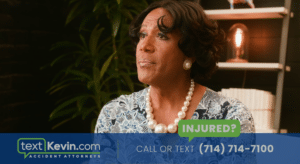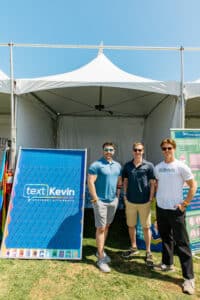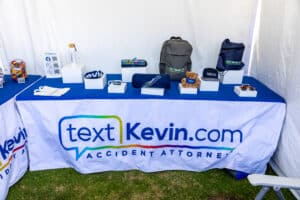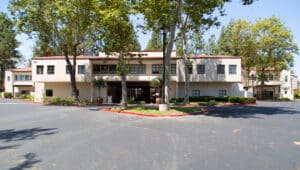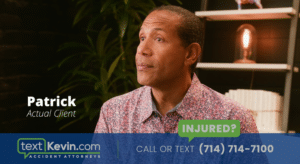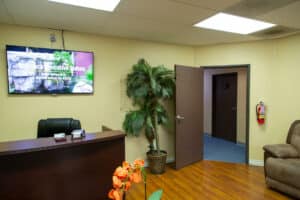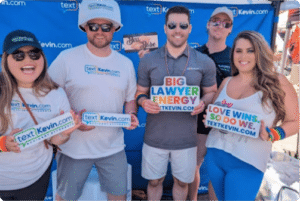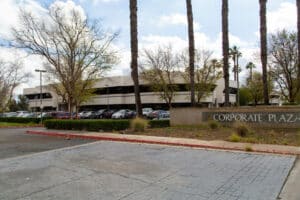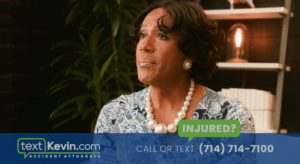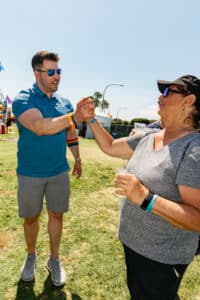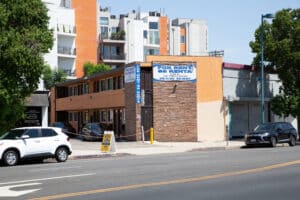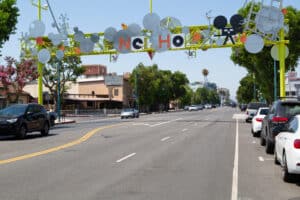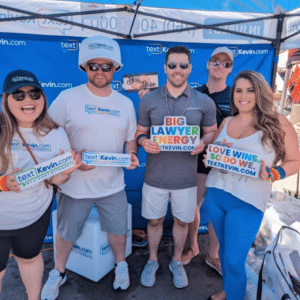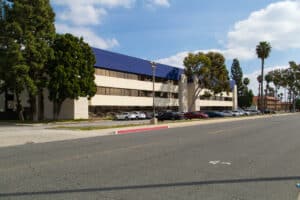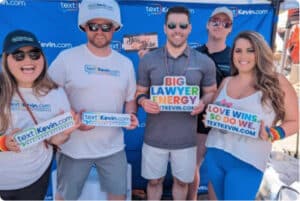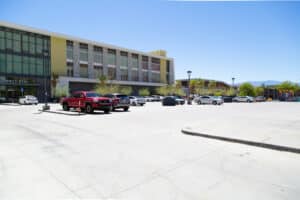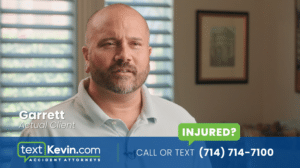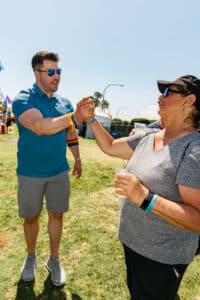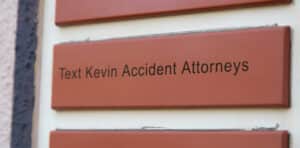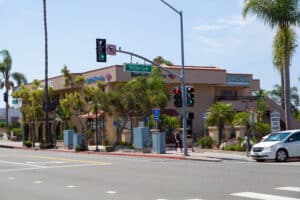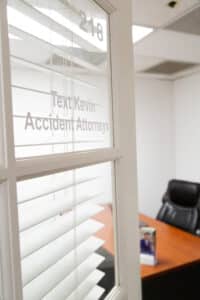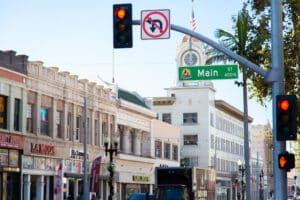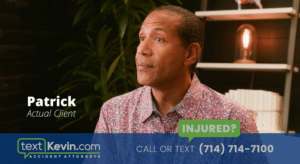Under California Vehicle Code § 12500 (a) VC, motorists are prohibited from operating a motor vehicle without a valid driver’s license. Drivers who are found in violation of CVC 12500(a) may be subject to infraction or misdemeanor penalties.
One of the top causes of motor vehicle accidents across California and the entire country is negligent driving. When motorists fail to operate their vehicles as safely as possible by speeding, driving under the influence of drugs or alcohol, tailgating, distracted driving, or engaging in any other type of negligent driving, the risk of a catastrophic collision is severe. If you are critically injured in an accident caused by another party’s recklessness, you may have the right to take legal action against them.
If the driver that is found in violation of Vehicle Code 12500(a) VC: Driving Without a License in California, their infraction or criminal charges could be used as evidence to support your claim against them with the insurance company or in civil court. You do not need to be intimidated by these legalities when you have a highly skilled California car accident lawyer from Text Kevin Accident Attorneys handling your case. While the state decides how it wants to deal with any criminal charges or infractions, we can begin collecting powerful evidence to ensure the liable party is held accountable to the full extent of the law. Contact our legal team for a free consultation today so we can jumpstart our investigation.
Driving Without a License in California Under Vehicle Code 12500 VC: Explained
It is important to understand how CVC 12500 could impact your car accident case against the driver that hit you. The statute reads as follows:
12500.
(a) A person may not drive a motor vehicle upon a highway, unless the person then holds a valid driver’s license issued under this code, except those persons who are expressly exempted under this code.
(b) A person may not drive a motorcycle, motor-driven cycle, or motorized bicycle upon a highway, unless the person then holds a valid driver’s license or endorsement issued under this code for that class, except those persons who are expressly exempted under this code, or those persons specifically authorized to operate motorized bicycles or motorized scooters with a valid driver’s license of any class, as specified in subdivision (h) of Section 12804.9.
(c) A person may not drive a motor vehicle in or upon any offstreet parking facility, unless the person then holds a valid driver’s license of the appropriate class or certification to operate the vehicle. As used in this subdivision, “offstreet parking facility” means any offstreet facility held open for use by the public for parking vehicles and includes any publicly owned facilities for offstreet parking, and privately owned facilities for offstreet parking where no fee is charged for the privilege to park and which are held open for the common public use of retail customers.
(d) A person may not drive a motor vehicle or combination of vehicles that is not of a type for which the person is licensed.
(e) A motorized scooter operated on public streets shall at all times be equipped with an engine that complies with the applicable State Air Resources Board emission requirements.
When CVC 12500 Charges Apply
Immediately after being involved in a car accident, you may have no idea that the driver who hit you was operating a motor vehicle without their driver’s license. Whether the driver was carrying their license or did not have a valid license at the time of the accident has no impact on whether they are found liable for the collision.
However, their failure to carry a driver’s license could help establish blame by suggesting a lack of responsibility or disregard for California’s traffic rules and regulations.
Generally, traffic violations under VC 12500 will only apply if:
- The driver that hit you never had a valid driver’s license
- Recently became a resident of California and failed to obtain a state-issued driver’s license within 10 days per the California Department of Motor Vehicles (DMV)
- Failed to renew an expired driver’s license
For the defendant to be found guilty of a CVC 12500 violation, the prosecutor must be able to show that the driver who hit you was legally required to have a California driver’s license or did not have a valid driver’s license while operating a motor vehicle on a public highway or street. Motorists do not necessarily need to have their driver’s licenses issued by the California DMV.
As long as the driver’s license is current in another state or country, motorists may be allowed to operate vehicles on streets or highways within California. However, the type of vehicle the defendant was driving at the time of the accident must be in line with their driver’s license authorizations. If the driver who hit you was legally required to obtain a California-issued driver’s license but failed to do so, 12500 VC charges may apply.
Burdens of Proof in Criminal and Civil Claims Involving 12500 VC
Since the liable party may face culpability in both civil and criminal court, it is important to understand what needs to be done to ensure they are found guilty or liable for your damages. It may surprise you to learn that the burden of proof in these cases is not the same.
The Burden of Proof in VC 12500 Cases
Charges under CVC 12500 are generally prosecuted as an infraction or a misdemeanor offense depending on the circumstances of the defendant’s case. In criminal court, guilt must be proven beyond a reasonable doubt according to California Code, Penal Code – PEN § 1096. However, allegations under 12500 VC are slightly different. Instead of the prosecutor needing to prove that the defendant was operating a vehicle without a driver’s license, the burden of proof is on the driver to show that they had a valid driver’s license at the time of the accident.
Although digital DMV records make this information more easily accessible to DMV officials and prosecuting agencies, the state believes it is easier for the accused to prove that they had a valid driver’s license than for the district attorney to establish the absence of a valid driver’s license. You can expect the defendant to obtain a legal representative who can help them avoid the criminal penalties associated with a 12500 VC violation.
The Burden of Proof in Personal Injury Claims
When your personal injury attorney with Text Kevin Accident Attorneys brings the liable party to court to demand the full compensation you deserve, the burden of proof is not on the defendant. Instead, it is up to us to prove liability based on a preponderance of the evidence. According to the Civil Jury Instructions Resource Center’s Civil Plain English Comparison under BAJI 2.60, we must present evidence that is clear and convincing. The jury does not need to believe the defendant is guilty beyond a reasonable doubt, but merely that the evidence suggests the defendant is more than likely at fault for your collision.
We will begin investigating as soon as possible after the wreck. We can even meet you at the accident scene, in your hospital room, or virtually via Google Meet or Zoom to learn more about how your accident occurred. The sooner we get started the better, as much of the most powerful evidence is only available for a limited amount of time. For example, if your collision occurred at a busy intersection, that intersection may have a camera that caught the wreck on video. However, if we do not request copies of this video footage, it could be overwritten or erased in a matter of days.
Other types of evidence that could help prove the defendant’s liability for your car accident in civil court include:
- Copies of the defendant’s driving history
- Photos of the injuries you sustained
- Photos of skid marks, vehicle positioning, and property damage
- Video footage of the accident
- Dash cam footage of the collision
- Copies of the liable party’s blood alcohol content (BAC) levels at the time of the accident
- Testimony from witnesses to the collision
- Report and testimony from accident reconstructionists
- Crash and police reports
- Testimony from responding officers
Penalties Of a Conviction Under 12500 VC
Driving without a license under CVC 12500 is considered a wobbler crime. This means the prosecutor has the discretion to charge the defendant with a non-criminal infraction or a misdemeanor. Several factors may be taken into consideration when determining how to prosecute the offense, including:
- Whether a child was involved
- Whether anyone was seriously injured or killed
- Whether the driver has a poor driving record
- Whether the driver has a criminal record
- Whether other aggravating or mitigating factors were present
If the driver that hit you has never been accused of a CVC 12500 violation, it will more than likely be handled as an infraction. This means they could pay as much as $250 in fines but will spend no time in jail. However, if the driver has had multiple 12500 VC violations over the last 24 months, it is more likely to be prosecuted as a misdemeanor violation. If convicted, the driver could be fined up to $1,000 and spend up to six months in a county jail.
Defendants could also have their vehicle impounded for up to 30 days if they have prior VC 12500 violations. Getting the vehicle released from the tow company could be costly. The driver that hit you may also have their driving privileges suspended or revoked. If convicted at the misdemeanor level, the judge could also order summary or informal probation for up to three years. While on probation, the defendant may need to:
- Attend a driver retraining program
- Pay restitution to any victims
- Obtain gainful employment
- Abstain from drug or alcohol use
- Pass drug and alcohol screenings
- Avoid contact with anyone who has been convicted of a criminal offense
- Attend school
- Complete community service hours
If the defendant is facing misdemeanor charges under 12500 VC, you can expect their criminal defense attorney to advocate for a plea agreement. Depending on the details of the case, the district attorney may be willing to allow the driver to enter a pre-trial diversion program or plead the offense down to the lesser infraction.
Note
Liability in Your Personal Injury Lawsuit
In addition to the criminal charges the at-fault party is facing, they can also be held accountable for the total value of your damages. It will be critical for your catastrophic injury lawyer from Text Kevin Accident Attorneys to conduct a comprehensive investigation and prove that the unlicensed driver is responsible for causing the accident.
Just because a driver is not carrying a valid driver’s license does not mean they are immediately responsible for causing the collision. However, if the driver is ultimately responsible for causing the collision, we may be able to file a claim against their auto insurance policy or pursue a personal injury lawsuit in the California civil court system.
Economic vs Non-Economic Damages
Whether you file an insurance claim or lawsuit, you have the right to be made whole. This means you should be fully reimbursed for every loss you experienced as it relates to your collision. These types of losses are collectively referred to as compensatory damages. To ensure we have accounted for every loss, we will further categorize your damages as being either economic or non-economic.
Economic damages include all monetary losses. They are tangible and easily verifiable with bank records, financial documents, repair quotes, receipts, and other official records. Some examples of the economic damages that could be paid out in your claim include:
- Automotive repair expenses
- Lost wages or tips
- Co-pays
- Rental car fees
- Auto insurance rate increases
- Ambulance bills
- Loss of paid time off
- Loss of employer-provided health insurance
- The diminished value of your vehicle
- Prescription medications
- Over-the-counter medications
- Medical home accommodations
- Unexpected childcare expenses
- Credit score damage
- Cost of household maintenance
- Home healthcare expenses
- Ongoing medical treatment
- Future healthcare costs
Car accident victims do not suffer only economic damages. Non-economic damages must be taken into consideration given how impactful they can be. Non-economic losses do not have a tangible financial value. They must be assigned one after we have determined how significantly you have been affected by them. Some examples of non-economic damages that are often paid out in car accident lawsuits include:
- Emotional distress
- Loss of consortium
- Inconvenience
- Permanent disability
- Loss of enjoyment of life
- Apprehension
- Anticipation
- Skin scarring
- Reduced quality of life
- Mental anguish
- Fear
- Shock
- Indignity
- Disfigurement
- Embarrassment
- Reputational damage
Punitive Damages
Punitive damages are another type of award that can be issued in car accident cases. According to California Civil Code Section 3294, punitive damages, also known as exemplary damages, are generally only awarded if the defendant engaged in behavior that could be considered grossly negligent, reprehensible, abhorrent, or intentionally harmful. If the driver who hit you was driving without a license under 12500 VC, punitive damages would only apply if the court system found it appropriate to punish them further.
Simply operating a vehicle without a license may not be considered grossly negligent or malicious. However, if the driver has a history of DUIs or reckless driving, coupled with their 12500 VC violation, punitive damages may be the best way to teach them a valuable lesson about the importance of driving safely.
Tip
How the Defense May Challenge 12500 VC
There are several potential ways the defendant may opt to challenge their 12500 VC violation and be accused of liability for your collision in civil court. Some examples of defenses that could be successful include:
- The defendant being exempt from having to carry a driver’s license
- The defendant being at least 18 years old, holding a valid driver’s license in another state or country, and being a California visitor
- The defendant had a valid driver’s license but was not carrying it at the time of the collision
- The defendant was not the one driving the vehicle
The prosecutor may allow the defendant to postpone their case while they obtain a valid state driver’s license. Once the defendant has a valid driver’s license, prosecutors are typically willing to issue an infraction or dismiss the charges entirely.
In your car accident trial, the defendant will likely attempt to introduce evidence suggesting they are not responsible for causing the accident. In fact, they may even accuse you of sharing liability for the accident. Since California follows pure comparative fault laws under California Civil Code 1714, if you are partially to blame, your settlement will be reduced.
If this happens, the defendant will not be required to pay out as much in damages. Fortunately, your legal advocate with Text Kevin Accident Attorneys will be ready to refute these allegations with powerful supporting evidence. We will do everything possible to ensure the at-fault party is unable to manipulate the state’s partial blame laws to their advantage.
Pro Tip
CVC 12500(a) FAQs
Is a driver’s license from another country valid in California?
What is the difference between “driving on a suspended license” and “driving without a license”?
Driving without a license is not generally charged at the criminal level unless the motorist has a history of doing so. However, driving on a suspended license is a crime under California Vehicle Code 14601.
Is 12500(a) VC correctable?
Who does not need a California license to drive in California?
The following parties do not need to carry a valid California driver's license to operate a motor vehicle within the state:
- Individuals driving off-highway vehicles while crossing public roads
- Non-residents driving with a valid diplomatic driver's license
- Non-residents age 21 or older who are transporting hazardous materials
- Those driving husbandry equipment if not on public roads
- Government officials operating government-owned or controlled vehicles while conducting government business
- Out-of-state visitors aged 18 or older who hold valid driver's license in their home country or state
Can 12500(a) VC be removed from a driver record?
Yes, a violation under 12500 VC could be removed from the defendant's driving record if they complete a defensive driving course.
What happens if the driver who hit you refuses to show their driver’s license to a police officer?
If the driver who hit you refuses to show their driver's license to the responding officers, they can be charged with a misdemeanor offense under CVC 12951. If convicted, they could spend up to six months in county jail and pay fines not to exceed $1,000.
Can an undocumented alien get a California driver’s license?
Yes, even individuals who do not have Social Security numbers may be eligible for an AB 60 license. These may come with federal limits.
How long before VC 12500 drops off your record?
Can you get car insurance with no license?
Can you drive with insurance but no license?
Use CVC 12500 Charges to Your Advantage With Help From Text Kevin Accident Attorneys
While it is ultimately up to the prosecutor to determine whether the driver that hit you is charged criminally under Vehicle Code 12500(a) VC: Driving without a license in California, you can still take legal action against the at-fault party. If the defendant is found guilty of a CVC 12500 violation, your dedicated car accident lawyer from Text Kevin Accident Attorneys can use this evidence to help support your liability claim in civil court. Since the burden of proof is based on a preponderance of the evidence, the more evidence we can present that is clear and convincing, the greater your odds of securing a verdict in your favor.
When you are anxious to bring the at-fault party to justice but are unsure of whether you have grounds for a claim and how to go about fighting for the compensation you deserve, turn to our legal team for the legal guidance and support you need when you need it most. Text Kevin Accident Attorneys offers 100% free consultations to car accident victims across the state of California. Claim yours by completing our quick contact form or calling our office to get started on your insurance and civil claim as soon as today.


























